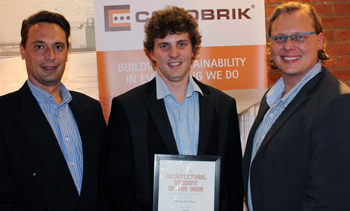Latest News Archive
Please select Category, Year, and then Month to display items
12 October 2020
|
Story Arina Engelbrecht
|
Photo Supplied
 Arina Engelbrecht from Organisational Development and Employee Well-being believes physical activity has a number of benefits for one’s health, including stress relief.
Arina Engelbrecht from Organisational Development and Employee Well-being believes physical activity has a number of benefits for one’s health, including stress relief.
Being physically active plays a big role in preventing the development of mental-health problems and in improving the quality of life of people experiencing mental-health problems.
Treatment for depression
Physical activity can be an alternative treatment for depression. It can be used as a stand-alone treatment or in combination with medication and/or psychological therapy. It promotes all kinds of changes in the brain, including neural growth, reduced inflammation, and new activity patterns are formed that promote feelings of calm and well-being. It releases endorphins – powerful chemicals in the brain that energise your spirit and make you feel good.
Physical activity can be very effective in relieving stress. Research in adults has found that physically active individuals tend to have lower stress levels compared to individuals who are less active. It also leads to improved sleep. When a person sleeps better and feels more rested, overall quality of life improves. They cope better with daily life stressors.
Reduce Alzheimer's risk
Regular physical activity can reduce your risk of developing Alzheimer's disease by up to 50%. It can also slow down further deterioration in those who have already started to develop cognitive problems. It stimulates the brain’s ability to maintain old connections as well as to make new ones.
A study asked people to rate their mood immediately after periods of physical activity (e.g. going for a walk/run, cycling, doing housework) and periods of inactivity (e.g. reading a book or watching television). Researchers found that participants felt more content, more awake, and calmer after being physically active compared to after periods of inactivity.
In conclusion, people who are physically active feel a sense of well-being, feel more energetic throughout the day, sleep better at night, have sharper memories, and feel more relaxed and positive about themselves and their lives.
“Being physically active not only changes your body, it changes your mind,
attitude, and your mood.” – Arina Engelbrecht
Department of Architecture recognises excellence
2014-11-20

From the left are: Gary Westwood, Marius du Plessis and Henry Pretorius
Photo: Ifa Tshishonge
Front page design by Marius du Plessis |
Marius du Plessis received the first prize in the Regional Corobrik Student of the Year Award for his design of a National Geothermal Research and Educational Centre in Johannesburg. The award ceremony was hosted by the Department of Architecture at the University of the Free State.
Anja Lareman was awarded the second prize for her Psychiatric Unit for the Deaf in Worcester and Mariska Peel received third prize for her design of a laboratory for the after oil epoch in Durban.
The Corobrik award for Best use of clay masonry brickwork was awarded to Valentino Moutzouris for his design of a Performing Arts Centre in Wynberg, Cape Town.
The event was well attended by architecture students who hoped to take home an award. Projects exhibited, received distinctions in one or all of the three main components, including design, the architectural theoretical treatise and building sciences.
“This is the greatest award that one could win in the Free State. It came with so much blood, sweat and tears, as I had to live, eat and work day and night at the same place in order to finish the project,” said Marius, master’s student in Architecture. He said that he hopes the project can be developed and implemented in mine shafts to solve the energy crisis in South Africa.
Henry Pretorius, Academic Departmental Head of Architecture, said: “It is vital for architecture to have a public interface. This event is to showcase the work of students and to make sure that it is accessible to the public. It encourages students to understand the value of their own work and its cognisance to society.”
Gary Westwood, Sales Manager of Corobrik Free State, Northern Cape and Lesotho region, said: “So far it has been an incredible journey. This annual event of 24 years is our way of giving back to the community who supports and sustains our business. It is wonderful to see how the architecture industry has adapted to a more sustainable way of design, by being part of the green movement.”
Marius will compete with other Corobrik winners from various universities on national level in April 2015.